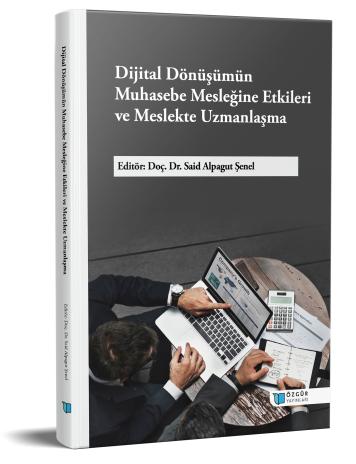
Effects of The Digital Transformation Process on Accounting Profession, Accounting Education and Accounting Professionals
Chapter from the book:
Şenel,
S.
A.
(ed.)
2025.
The Effects of Digital Transformation on the Accounting Profession and Specia-lization in the Profession.
Synopsis
This study examines the effects of the digital transformation process on the accounting profession, accounting education and professional members. Digitalization has significantly changed accounting processes, accelerating the integration of innovative technologies such as artificial intelligence, blockchain, big data analytics and robotic process automation. The aim of the study is to analyze how digitalization transforms accounting processes, how it is integrated into accounting education, and how professionals adapt to this change. The methodology was based on literature review and evaluation of sectoral developments. In the study, the integration of technological developments into the curriculum, the adaptation of students and faculty members, and the pedagogical effects of digitalization in the context of accounting education were discussed. In terms of accounting practices, how processes are transformed in terms of automation, speed and accuracy, the development of accounting information systems and the ethical dimensions of digitalization were evaluated. In addition, the research examined how digitalization changes the roles and skills of accounting professionals, how it increases ethical dilemmas and its psychological and sociological effects. As a result, digitalization increases efficiency in accounting processes, expands and changes the roles of professionals, and makes accounting education future-proof. However, issues such as technological adaptation, ethical issues and the adaptation of professionals to changing competencies are critical to the effective management of digital transformation. Accounting professionals who adapt to digitalization, adhere to ethical values and are knowledgeable of technology will play a key role in the sustainability of the profession.

